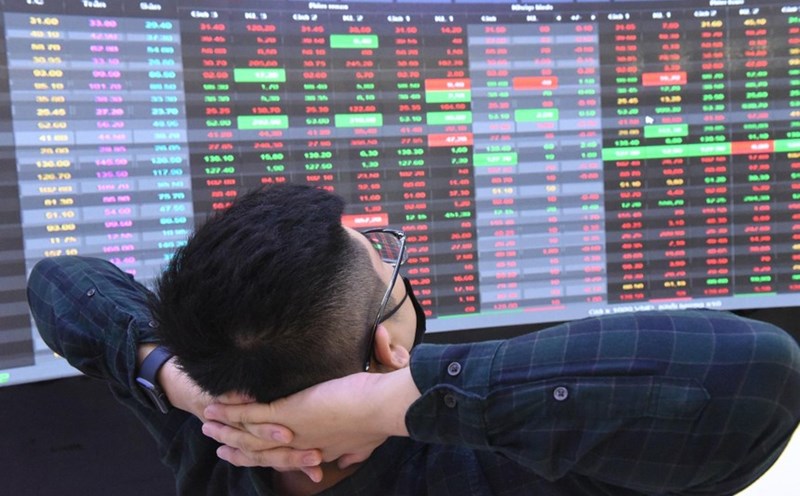The market had a gloomy trading week as domestic cash flow continued to "leave", while foreign investors continued to increase pressure with a net selling value of nearly 1,200 billion VND, one and a half times higher than last week.
At the end of the trading week, the VN-Index decreased by 24.11 points (-1.92%) to 1,230.48 points. Liquidity decreased sharply, in which the two sessions on Thursday marked the lowest matched volume in 2 years, the previous session was the lowest in 14 months.
On the HOSE, the highlight is that YEG shares were sold off heavily with four sessions hitting the floor and the “Christmas tree” pattern has almost fully formed. Recently, YEG announced that it will no longer produce the two programs “Call Me by Fire” and “Sister Who Makes Wave” in 2025, which also attracted attention.
The VN-Index has been continuously suffering from declines in the past week, reflecting the increasingly cautious sentiment of investors. Moreover, trading volume is below the 20-week average, indicating that cash flow into the market is still limited. Currently, foreign investors are still net sellers, which is also not a positive factor for the index.
SGI Capital has just released a report on the market in 2025. Accordingly, unlike the context in early 2024, the Vietnamese stock market will enter 2025 with less favorable conditions when two important driving forces, cash flow and internal growth of enterprises, both show signs of significant weakening.
In the context of loose monetary policy running out of room, the State Bank's 16% credit growth plan for 2025 requires the banking system to mobilize a correspondingly large amount of capital. This could cause interest rates to increase more than expected and affect domestic cash flow in the stock market, which has been exhausted after net selling by foreign investors and issuance from listed enterprises (mainly securities and real estate groups).
Monetary easing periods always witness domestic money flowing into the stock market strongly absorbing and even overwhelming foreign supply to maintain positive growth momentum for the market. However, when the easing period passes, interest rates increase slightly again, domestic money flows weaken, causing liquidity to decrease, and the risk of price decline will increase if foreign investors continue to net sell or there are events that cause supply to suddenly increase.
SGI Capital expressed the view that the major concern of the Vietnamese stock market in 2025 is still the net selling pressure from foreign investors. The record net selling of more than 94 trillion VND last year prevented the VN-Index from surpassing the 1,300 point mark even though domestic cash flow participated strongly and absorbed this supply well.
The market has always agreed on the attractiveness of the Vietnamese stock market as well as the possibility of soon being upgraded to an emerging market - Emerging Market will attract foreign capital, but the reality is the opposite. Vietnam is a market that has been sold off strongly in 4/5 recent years with the largest selling rate in the region when calculated based on capitalization or total value held by foreign investors.
“To be fair, Vietnam’s market valuation is not more attractive than other markets, although most of its capitalization belongs to high-cyclical risk groups such as banking, finance, and real estate. Therefore, the expectation of foreign capital returning to net buying in 2025 will be difficult to achieve if valuations are not cheap enough and exchange rate risks still exist,” SGI Capital commented.












